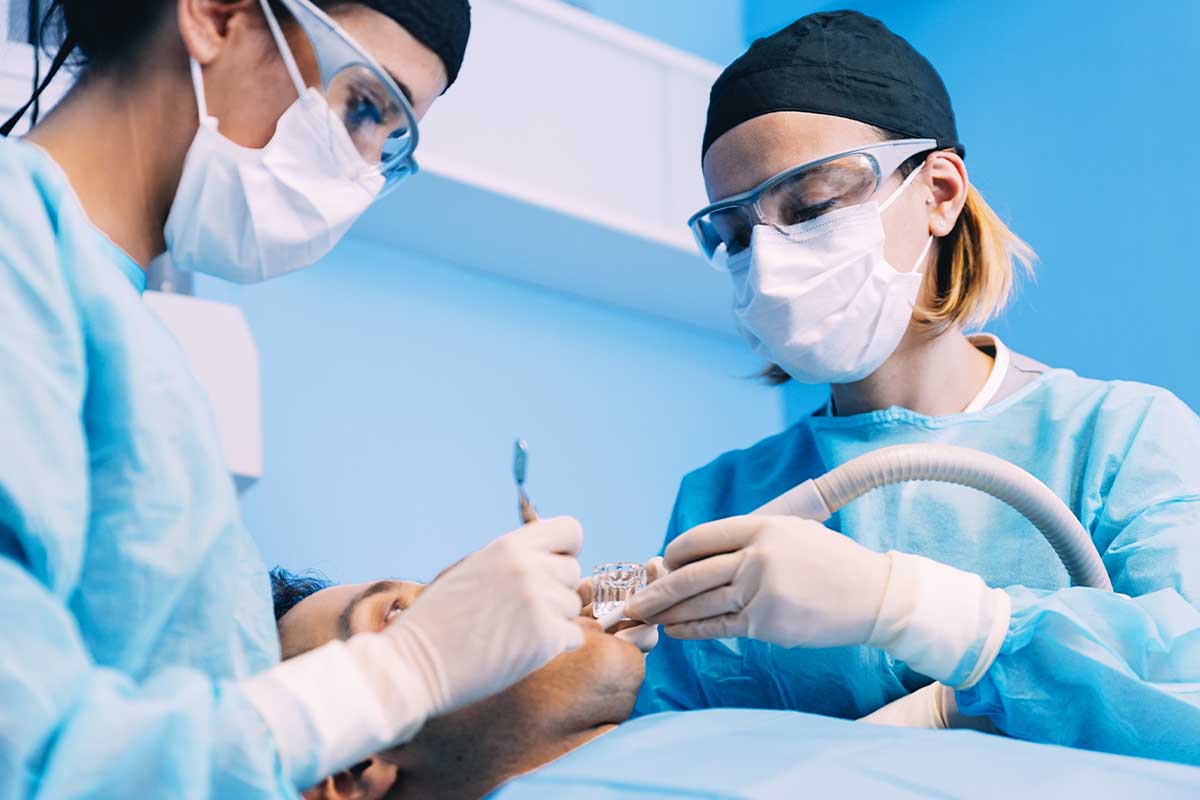When you have cosmetic or restorative dental procedures that involve the head, neck, jaws, and face, you may need a specialist called a maxillofacial surgeon. These surgeons diagnose and treat a spectrum of injuries, defects, and diseases impacting soft and hard tissues in your mouth and face areas. They train to administer anesthesia and provides care in a clinical or office setting. However, they often hire physicians from Virginia-based SleepGuardian to administer anesthesia for your safety and comfort.
Types of Oral and Facial Surgery
There are many types of oral and facial surgery. Below, find a cross-section of the types of procedures handled by oral maxillofacial surgeons:
- Wisdom Teeth Extractions: These are the most unpredictable and potentially hard to remove teeth. Dentists often refer wisdom tooth extractions to oral and facial surgeons.
- Tooth Removal: Sometimes, extenuating circumstances make it more desirable for an oral and facial surgeon to remove one or more teeth.
- Dental Implants: Oral and facial surgery to install dental implants precedes the installation of partial or full dentures or an individual tooth.
- Tooth Exposure: Sometimes, a tooth becomes impacted below the gum line, requiring surgical extraction.
- Jaw Surgery: If you have a poorly aligned jaw, orthognathic surgery can correct the defect and make it easier to speak, chew, and breathe.
- Facial Trauma: Oral and facial surgery to treat facial trauma requires specific precision and skill.
- Oral Pathology: This type of surgery seeks to identify and treat early-stage oral cancer.
- Sleep Apnea: Corrective surgery on the sinuses and other structures can ensure that you get enough oxygen when you breathe while sleeping.
- TMJ Disorders: If your jaw joint pops, clicks, or locks, and other treatment methods have failed, your dental professional may recommend surgery to correct your TMJ disorder.
Advantages of Anesthesia for Plastic Surgery
If you have facial cosmetic surgery, you will probably need general anesthesia. This type of anesthesia is delivered through an IV, gas, or injection. You will most likely sleep during the procedure. One of our physician anesthesiologists administers the dental or medical anesthesia and ensures that no complications arise.
We also offer anesthesia services for office-based oral and facial surgery. With our experienced anesthesiologist on the job, the surgeon can focus on completing the procedure. Our physician will remain throughout the procedure to ensure you get the anesthesia needed to keep you comfortable. Further, our physician anesthesiologists sit down to explain their role to you prior to the procedure.
Anesthesia Options for Oral and Facial Surgery
There are several options when it comes to choosing the right anesthesia for oral and facial surgery. Let’s take a look at the major types of anesthesia and how they’re used.
Local Anesthetic
You remain awake throughout the surgery, and the anesthesiologist administers an anesthetic just on the area impacted by the procedure. Local anesthetic is often used with other types of anesthesia during oral and facial surgery. For example, you might receive a local anesthetic prior to tooth extractions or the removal of soft tissues.
Nitrous Oxide Sedation
Nitrous oxide is also referred to as laughing gas. You breathe in a combination of nitrous oxide and oxygen through a mask. The doctor may also use a local anesthetic to ensure your comfort throughout the procedure. You can remain conscious without feeling pain thanks to the mixture’s analgesic effect. For example, we may use nitrous oxide for oral surgery procedures such as wisdom teeth extractions and the installation of dental implants.
Office Based General Anesthesia
We administer general anesthesia through an intravenous line or IV. Some medications used are ketamine, versed (benzodiazepines), fentanyl (opiate), and Diprivan. Throughout the procedure, a physical anesthesiologist monitors your breathing and vital signs.
Hospital-Based General Anesthesia
If you under oral or maxillofacial surgery in a hospital, you may require a strong anesthetic. For example, complicated reconstructive surgery typically requires a strong anesthetic administered through an IV.
Anesthetic for Oral and Facial Surgery in Virginia
Sleep Guardian provides physical anesthesiologists who administer anesthesia for a wide range of procedures. Contact us at (866) 256-1146 for more information on anesthesia services for oral and facial surgery. You can also browse our FAQs to learn more about our company and services in Falls, Church and Richmond, Virginia, and the Washington, D.C. area.







